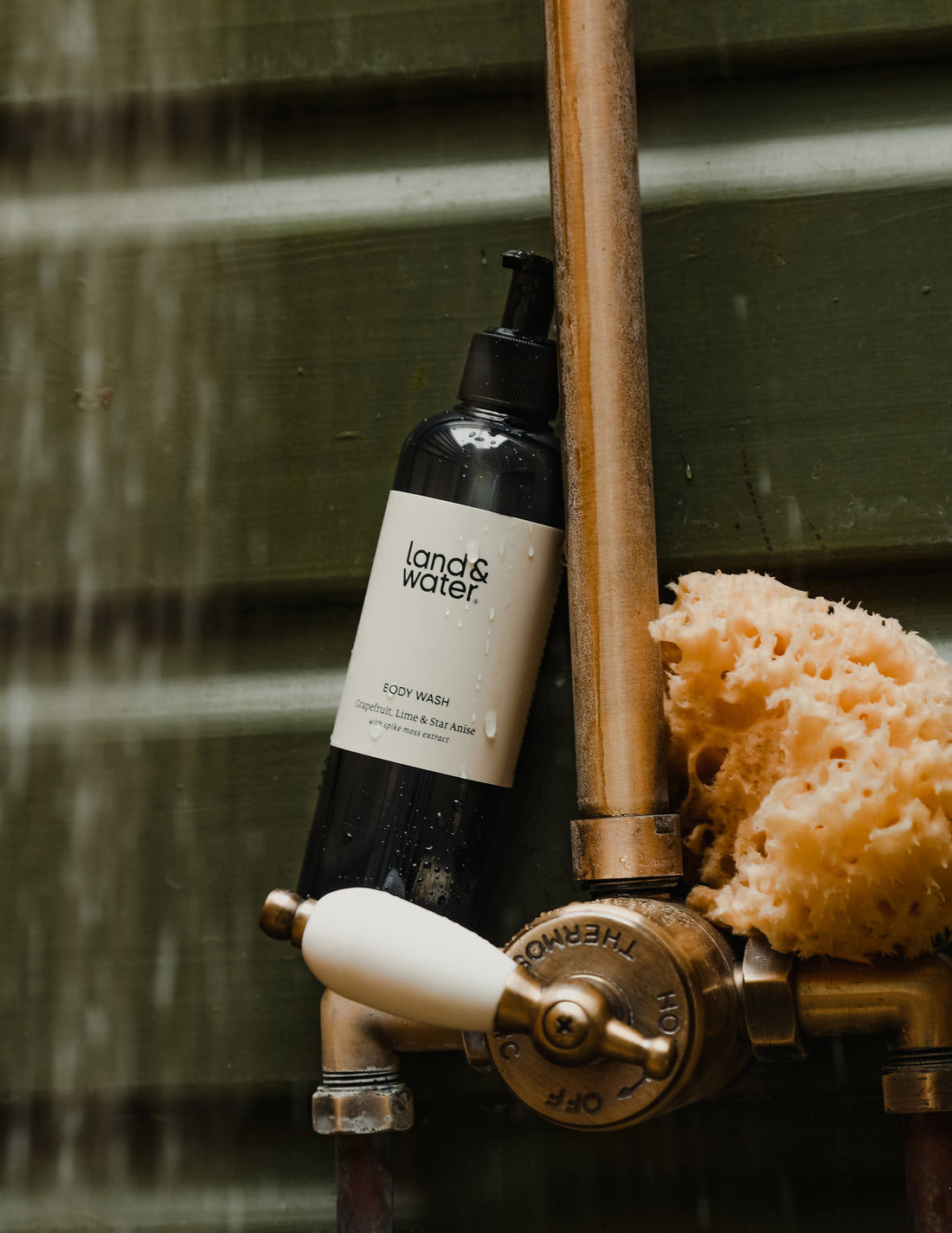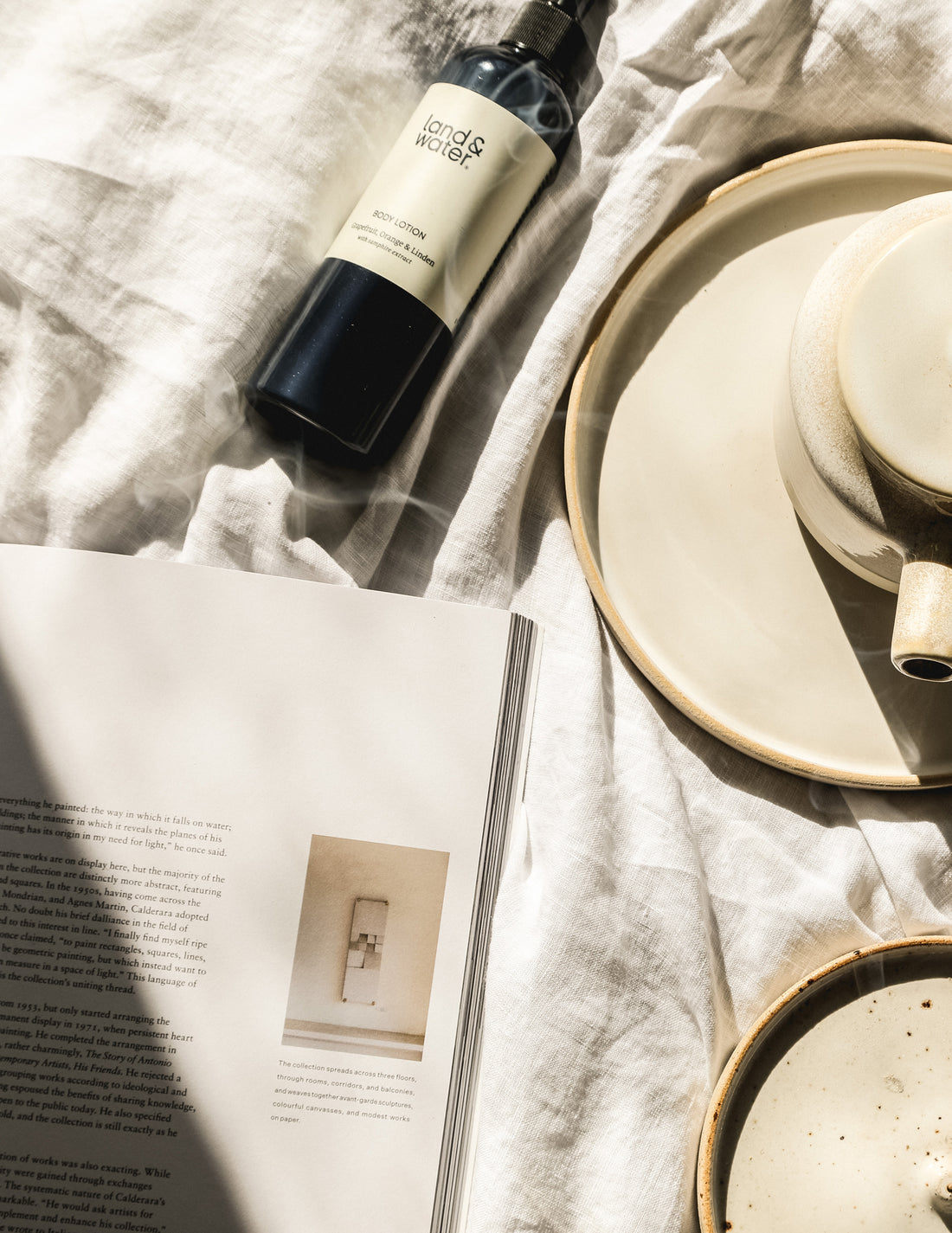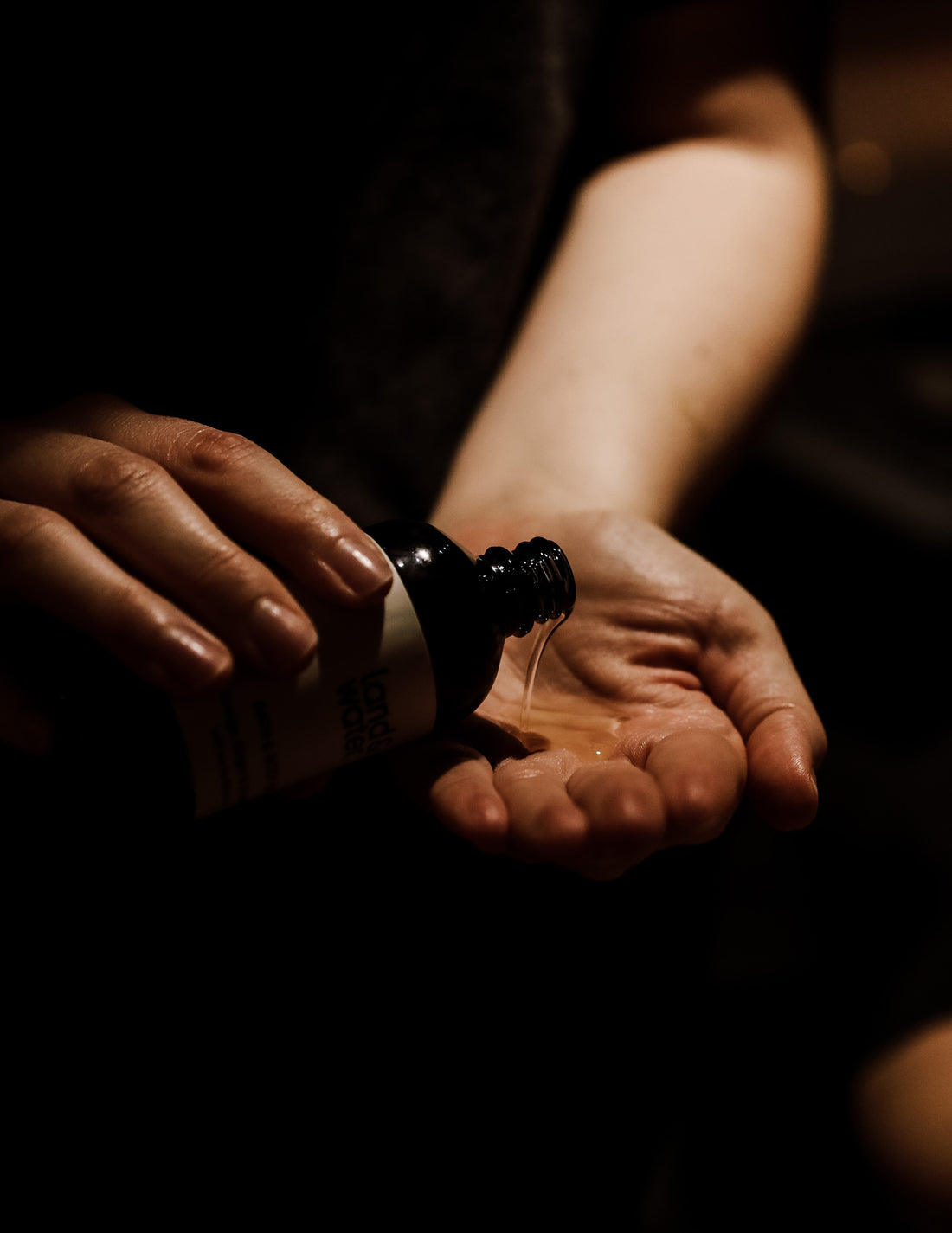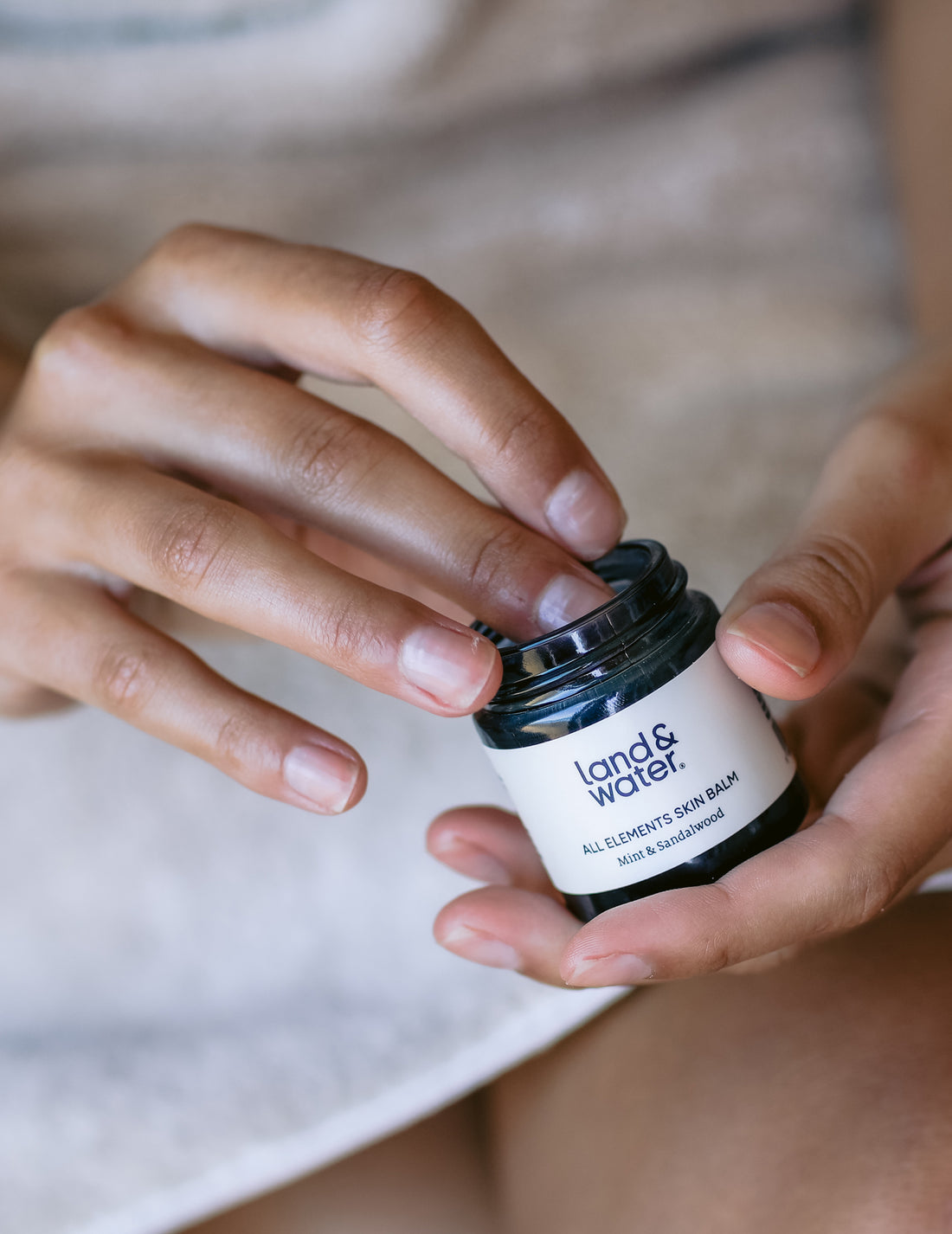Evocative, transporting, mystifying….the sense of smell continues to intrigue neuroscientists, psychologists and writers. Author, broadcaster and fragrance aficionado Lizzie Ostrom (aka Odette Toilette) takes us on a journey through scent, memory and emotion.
From my first sighting on the beach it was difficult to tell how far the cave would go, but as soon as I stepped inside, I realised it went deep – a corridor to carry us into the cliff. Moving further in, the stilled air became saturated with smell. Perhaps those odorous biomaterials produced by algae and smelling of iodine, called bromophenols. Or the sulphurous dimethyl sulphide which is made by plankton-eating bacteria. Or trimethylamine, which is partly responsible for the fishy whiff produced by sea creatures as they degrade.
Hundreds of compounds produced that instantly recognisable sea smell. Its intensity turned the cave momentarily into a space for consciously examining olfactory memories on a theme, as if I had direct access to all the other moments in life in which I had explored a coastal cave. The earliest was a time in Cornwall when I was three and had to go to the loo in a cave. I felt faintly mortified in case this were to be discovered. I felt bit of that emotion again over thirty years later, the me of three and the me of 36 coming together (for the record: I didn’t use the cave as a toilet this time).
The sense of smell haunts and it taunts. In the cave, as in a florist’s, or a pine forest, we are in environments that prime us for their aroma. The look, the feel, the air conditions are in concert with the smell to produce an experience loaded with resonance. But just as often we are ambushed by a surprise smell, which gives no clue where it came from.
The primal brain
When we smell, inhaled odour molecules dissolve in mucous at the top of our olfactory cleft and bind themselves to receptor cells, producing a signal which is carried to the olfactory bulb on the brain’s frontal lobe. Our other senses pass their initial signals to the thalamus for processing before they make their way to the amygdala.
Smell, however, bypasses this step, and the signals head straight for the amygdala – the reptilian part of our brain, responsible for mood, emotion and behaviour. Before we might semantically ‘tag’ an aroma it has already triggered an emotional response which may have been laid down years ago, during our first ever exposure to that smell. Smells are potent mood joggers because the ‘sense of the sense’ is delayed. We are hit with feeling before logic.
Smells are potent mood joggers because the ‘sense of the sense’ is delayed. We are hit with feeling before logic.
Some odours – say coffee – are more readily retrieved and labelled, especially if they occur in a congruent context like a café. But those that are more occasionally experienced can be more mercurial. Depending on the frequency of exposure, they could be bonded to a singular memory rather than a general sense of time or place.

Perfumed potency
This is perhaps why perfumes, often attached to a person, can be so transporting. Years ago I worked for a few months with someone totally different to me: super organised, gum-chewing, with perfect nails that tap tap tapped on her Blackberry. She smelt sensational. One day I asked her what it was: Musc Ravageur she revealed, extracting an enormous perfume bottle from a bag that looked too small to contain it. It was ‘the thing’, she said. ‘Cats follow me home’, she added. (Was this a situation to be desired?!)
A while later I bought a bottle. I enjoyed wearing it but it never felt right. The other week, I found it in the cupboard and sprayed. Instantly, it was as if this colleague were standing in front of me. She and I haven’t met in over a decade. I suddenly felt so uncertain and out-of -my-depth, just as if I was still working on this project all that time ago. Smells disrupt our sense of proportion and hierarchy. They trip us into recalling short-term acquaintances in as much detail as our loved ones. And then we realise that somehow, these people were important to us in an unforeseen way.
From the land to the water
Sometimes our emotional response is maverick. But is it possible for a creator to gently guide us towards a mood using collective smell associations, while offering space for personal interpretation? Perfumer Richard Howard of Arcania Apothecary has deftly managed the feat in his fragrances for the land&water collection, born out of Watergate Bay in Cornwall. They are designed not to offer a literal facsimile of the smells of the shoreline (no cavey dimethyl sulphide or lake reeds here), but to translate the emotion of being on the threshold of the elements.
They are designed not to offer a literal facsimile of the smells of the shoreline (no cavey dimethyl sulphide or lake reeds here), but to translate the emotion of being on the threshold of the elements.
Relaxation and alertness are often positioned as contrary states, yet they can absolutely co-exist. Chilling out can occur as much in the bracing arms of the cold water as it does curled up in a window, looking out over a changing sky. Richard has yoked the forces together: “I created two different scent worlds – the one occupying an exhilarating airy territory, and the other a more serene territory.”
For Richard these two themes were extrapolated into ‘accords’, the building blocks of perfumery in which raw materials are combined into creative concepts. The first accord is expressed through buoyant citrus oils and the latter through green and woody notes. The balance shifts across each product depending on the experience intended in their use, so that the hand wash lifts with lime, grapefruit and mint, while its paired lotion takes us into a more hypnotic space with glimpses of heady ylang ylang.
Preferring to work with a palette of essential oils, Richard finds plant materials stimulate strong mood effects. “Nature’s design is infinite and these oils contain the complexity in life itself. You have to have enormous respect for them. The most powerful experiences come when a smell not only reaches your emotional self and your memory, but has a therapeutic effect on the body so it is truly holistic.”
“Nature’s design is infinite and these oils contain the complexity in life itself. You have to have enormous respect for them.”

Plant power
Dr Mark Moss, a founding member of Northumbria University’s Cognitive Neuroscience Unit, has led many studies on the effects of photo-aromatics on mood and cognitive function. His research has helped to evidence that the aromatic properties of some herbs improve contentedness while decreasing memory performance (lavender), while others improve short-term memory. His study on exposure to rosemary essential oil aroma showed that one compound within rosemary, 1,8-cineole, crosses the blood brain barrier and acts on receptor sites to improve performance in cognitive tasks.
Fascinated by the shared use of plant oils for particular purposes across very different global cultures, Dr Moss suggests that our visceral responses to smells could be part of an inherited screening capability: “Genes that code for the detection of smells existed in our ancient ancestors more than seven hundred million years ago – before the evolution of eyes, or indeed brains.”
“Genes that code for the detection of smells existed in our ancient ancestors more than seven hundred million years ago – before the evolution of eyes, or indeed brains.”
Dr Moss argues that our interaction with plants and their odours has helped shape the development of our very sense of smell: “Over millions of years, we have evolved a largely common smell palette that helps us distinguish foods that might be dangerous or good to consume, read bodily aromas, and recognise a range of plants that exhibit a range of medicinal and socially functional actions. It seems plausible that we’ve evolved to become hardwired to identify them quickly due to their value.”
Our sense of smell is arguably much more sophisticated than we could even begin to believe, and much operates outside of our conscious awareness. But sometimes, we cannot fail to notice what is happening. One of my favourite streets in my home city features a five-metre stretch where an extractor fan brings out airflow from a nearby swimming pool. For just a few moments you can be saturated in an atmosphere of chlorine. Each time I go, I ready myself for it, walk into the smell-zone and absolutely revel in the bizarre experience of inhaling an aggressive odour which has no inherent properties cueing relaxation, other than context. It’s a proxy for water, but via a set of associations it has a unique ability to take me out of concrete and pollution and into the elements, as if in a purer more clarifying space. Strange, but true…And I’d wager the same is true for many of you, too?
+
Lizzie Ostrom is the author of Perfume: A Century of Scents, published in the UK by Hutchinson. She’s also a broadcaster, consultant and author, who has worked with the Tate, Radio 4, Monocle, Liberty of London, and the Royal Institution.









